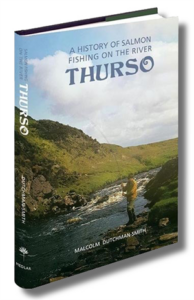We live in difficult and uncertain economic and environmental circumstances and despite all the efforts being made salmon stocks are still in jeopardy and some fairly miserable catches being recorded on many rivers even classic ones.
We all dream of fishing the best rivers at the peak of the season but for most of us it remains a dream rather than a reality. During the majority of my fishing career it has been the case that there were rivers or at least some beats on rivers upon which fishing was simply unattainable not because it was not to let, at a price, but because demand far exceeded supply resulted in the hackneyed phrase “waiting for dead mens shoes” even for those with the substantial funds available to fill them. Waiting lists, even for the poorer times of the season, were a common feature (with a view in due course to hopeful promotion to the better ones) and however outrageous seemed the asking price there was always somebody on the list willing to snatch any available week. The fair and sensible custom of giving first refusal to the tenant for the previous year did not help as this resulted in good weeks passing from generation to generation unaffected by changes in the actual composition of the party.
However, there are signs that in terms of gaining access to premier rivers and beats things are easing somewhat. A number of factors appear to be heralding a change, some of which are referred to in the opening paragraph of this article. In very simple economic terms demand does not appear to be exceeding supply to the same extent that it was, resulting in not just increased opportunities, but also on quite a few rivers and beats a marked reduction in the price being charged.
A significant factor in this increased availability is the growing trend, rather than to let fishing by the week to a party of rods, to offer it by the day to individual rods. This is made much easier by the fact that more and more fishing is becoming available for let online, particularly through the well-known sporting agencies. Some beats now do this exclusively, others use it to fill in unexpected vacancies or stipulate a minimum of, say, two or three days. It is much easier to charge a higher rate when the angler is only going to have to pay it for a day or two rather than for a whole week which, when added to the cost of travel and accommodation, can appear to many people a ludicrous amount. On the other hand, paying just for a day or two puts the fishing within the reach of a much wider band of the angling fraternity. No doubt this is part of the reason why for an increasing number of anglers, the trip north of the border is for the half week not the full. Three-day lets are now widely available and even where strictly speaking, the fishing is normally let by the week, negotiation can reveal willingness to compromise. A few seasons ago I acquired a cottage for four days with fishing for 2 rods for three days on a good beat of a river going through a bad patch but with a good long-term reputation, the owners doubtless taking the view that half income was better than none. In fact someone else took the other half of the week but if they had held out for a week’s booking then it may not have been let. I have never had the courage to negotiate on the specific asking price (which does not mean that I have always taken the fishing available) although logically there is no reason why, conducted in a gentlemanly fashion, it should be frowned upon. As a nation we seem to shy away from barter.
It is important to keep in mind that the main reason why there is better availability and reduced prices is because the fishing is not as good as it used to be and indeed may have deteriorated very significantly or be in the process of doing so. This is not necessarily all “doom and gloom” at least in the longer term and I urge everybody to have a look at the excellent video presentation by Dr Ronald Campbell of the Tweed Foundation entitled “The History of Tweed Salmon and its Lessons for Today” which deals with the changing run patterns and proportions between grilse and salmon in relation primarily to Tweed but of much wider potential application.
For those young enough to have a substantial number of years fishing still ahead of them, there may be some merit in taking presently cheap/moderately priced spring or summer fishing in order to have an established claim to it if and when by reason of changes in the cycle of the runs of salmon and grilse, these periods do in fact return to being the prime time – and this may not be too far away.
Tweed provides a good example of what is happening. Until the last few seasons the idea that you could get on to such beats as Junction, Floors, Henderside, Sprouston, Lees and quite a few others too numerous to mention for a few days at what was considered to be the best part of the season (Autumn) was unheard of, regardless of a willingness to pay whatever price was asked, whereas now a little diligent searching of the internet shows that it is comparatively easy to do so and, in many cases, the price being charged is very substantially less than was the position a few years ago.
Other famous classic rivers and beats are experiencing the same situation to a greater or lesser extent. Whilst on what is generally accepted to be the best of the Highland rivers,(apart from the good but, when conditions are right, heavily fished association water), the Helmsdale, fishing cannot be obtained for a day or for less than a week, but in recent seasons you have been able to get a week in the spring and even in September albeit at a significant price which was previously unheard of except in the very early weeks of the season (which incidentally for the last few years have generously been made available to all free of charge on the whole river for the first week or two of the season)
What conclusions can be drawn from this? Any must be tentative but the very fact that fishing of this quality is having to be put on the open market to obtain tenants is at least indicative that the days when there was a surfeit of wealthy anglers willing to pay any price to obtain good salmon fishing might be coming to an end. In the 1960s and 1970s it used to be claimed that you could never get a decent week on the prime Tweed beats at peak season because groups of Lincolnshire farmers were prepared to pay any price to obtain them. Whether there was ever any truth in this I cannot say and indeed I am sure that farmers today are not, in general, in a position to adopt such a carefree attitude but I suspect that even people in walks of life who can in fact afford the substantial outlay are beginning to either think twice about it and direct their attentions elsewhere abroad, or to at least reduce the amount of money and time they will expend on fishing in Scotland.
At first sight this development may seem to be of benefit to a wider section of the general angling population particularly those with lump sums from generous final salary pension schemes or other resources that provide an opportunity to splash out. Certainly the chance, even as a one-off trip of a lifetime, to fish the best is now achievable but this should not cloud the very real problems it reveals. Of most concern is the fact that it is clear recognition that the salmon fishing now is not as productive or attractive as it has been in the past and this decline is likely to continue. There are a multitude of reasons for this, some more important than others. Obvious ones are, decline in salmon runs, compulsory catch and release, the opening up of fisheries worldwide that are comparatively easily accessible and, in financial terms, often equate favourably with the costs of a good week salmon fishing in Scotland. Not as easy to assess are enjoyment factors such as the same group of friends making annual expeditions enjoying not just the fishing but each other’s company as opposed to turning up at the beat on the day and meeting the other rods for the first time, companionable, sporting or otherwise, and even if you enjoy a good day with them you may still have to start completely afresh on the next. It is much easier to share a beat with friends that it is with strangers.
As I have already acknowledged, there will be many for whom the fact that there is availability of this fishing is meaningless even given the reduced price. Of course sometimes good fishing is available for significantly less cost but finding it is not easy and it suffers now from the “problem” that used to apply to the premier rivers and beats now in decline namely too many anglers chasing the limited number of rods available. Economic theory would suggest that this will inevitably lead to increased prices!
Some rivers or beats are successfully “bucking the trend” and maintaining good catch levels, albeit that the long drought this year has inevitably caused a marked reduction in the catch. The Thurso is a good example of a river that thus far has maintained a creditable average annual catch and even on some rivers where it has declined has been in progress for some time individual beats can throw up surprises such as Tillmouth on Tweed this year.
Prime Salmon fishing will always be expensive and despite that fact I am not convinced that, overall, great profits are being made from renting it out on short-term lets. Rather like air travel and the relationship between first-class/business-class/economy, the high rents of the peak season inevitably subsidise the outgoings in the majority of the rest of the season which attracts substantially lower rental income. Long-term time-sharing did not really succeed in the 1980s and 1990s but in these times of uncertainty there is always the risk that proprietors will look again towards it as a means of security and obtaining significant capital sums. It would not necessarily avoid the same problems as are now apparent but if it did have a re-emergence of popularity with the wealthy then it would remove from circulation and availability to anglers in general the prime time fishing that they are now getting at least a limited opportunity of enjoying.

Malcolm Dutchman-Smith is the author of A History of Salmon Fishing on the River Thurso
You can read our book review and find out how to buy yourself a copy HERE!


